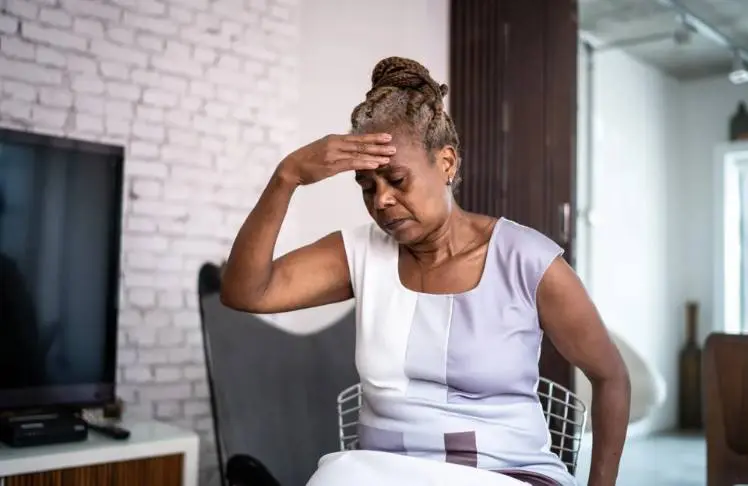
Black women who experience racism may be more likely to suffer or die from a stroke, according to a new study.
Data from Boston University’s Black Women’s Health Study (BWHS) — the largest follow-up study on the health of Black women in the United States — revealed that Black women who reported racism in employment, housing, and interactions with police, had an estimated 38% increased risk of stroke compared to women who didn’t report experiencing racism.
“Our findings suggest that the high burden of racism experienced by Black U.S. women may contribute to racial disparities in stroke incidence,” Shanshan Sheehy, an author of the study and an assistant professor of medicine, said in a statement.
Stroke Rates Among Black Women
A stroke, also known as a “brain attack,” happens in two ways: an ischemic stroke, when blood flow to the brain is blocked, and a hemorrhagic stroke, when there’s sudden bleeding in the brain. Strokes are life-threatening and require immediate medical attention to prevent brain damage, long-term disability, or death.
Stroke is a leading cause of death among Black women, who are twice as likely to experience the condition compared to non-Hispanic white women, according to the U.S. Department of Health and Human Services.
Commonly known risk factors include obesity, high blood pressure, high cholesterol, and smoking. Other influences, such as interpersonal racism, have been understudied, researchers say.
“Our study provides direct evidence on perceived racial discrimination at the interpersonal level in relation to subsequent occurrence of stroke,” Sheehy said.
How the Study Was Conducted
Sheehy and her team reviewed BWHS data from 1997 to 2019. All of the participants were heart disease- and cancer-free in 1997. That year, they answered questions related to interpersonal racism; including if they’d been mistreated in employment (hiring, promotion, firing), housing (renting, buying, mortgage), and interactions with police (stopped, searched, threatened) due to their race.
The researchers identified 1,664 incidents of stroke in the 48,375 participants during the 22 years following the questionnaire. Further research revealed that Black women who reported interpersonal racism had a higher stroke risk, even after accounting for demographic and vascular risk factors.
Previous studies have also linked racism to other illnesses.
“The BWHS has previously reported associations of perceived interpersonal racism with increased risks of type 2 diabetes and obesity, decreased subjective cognitive function, and other outcomes,” the authors wrote.















